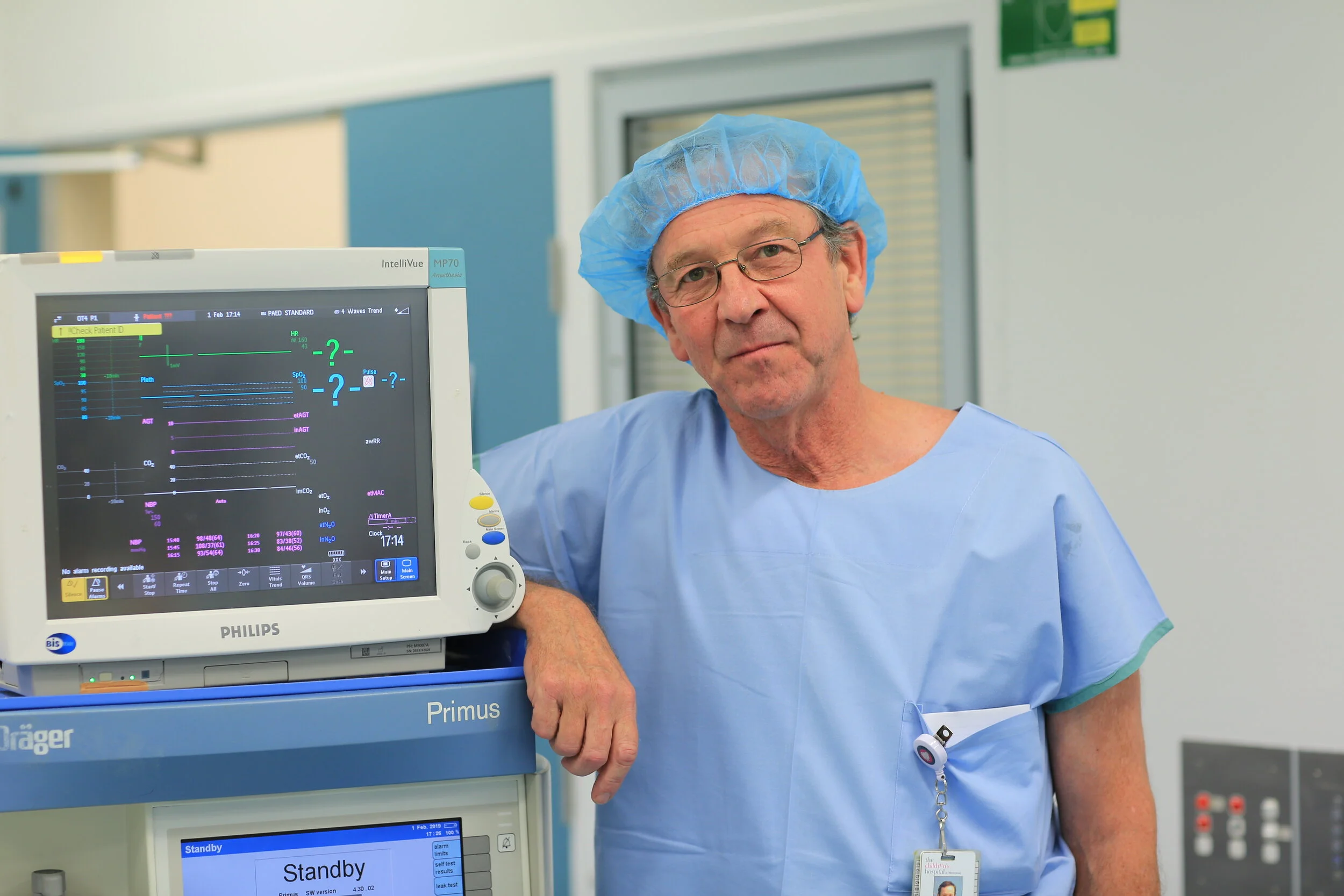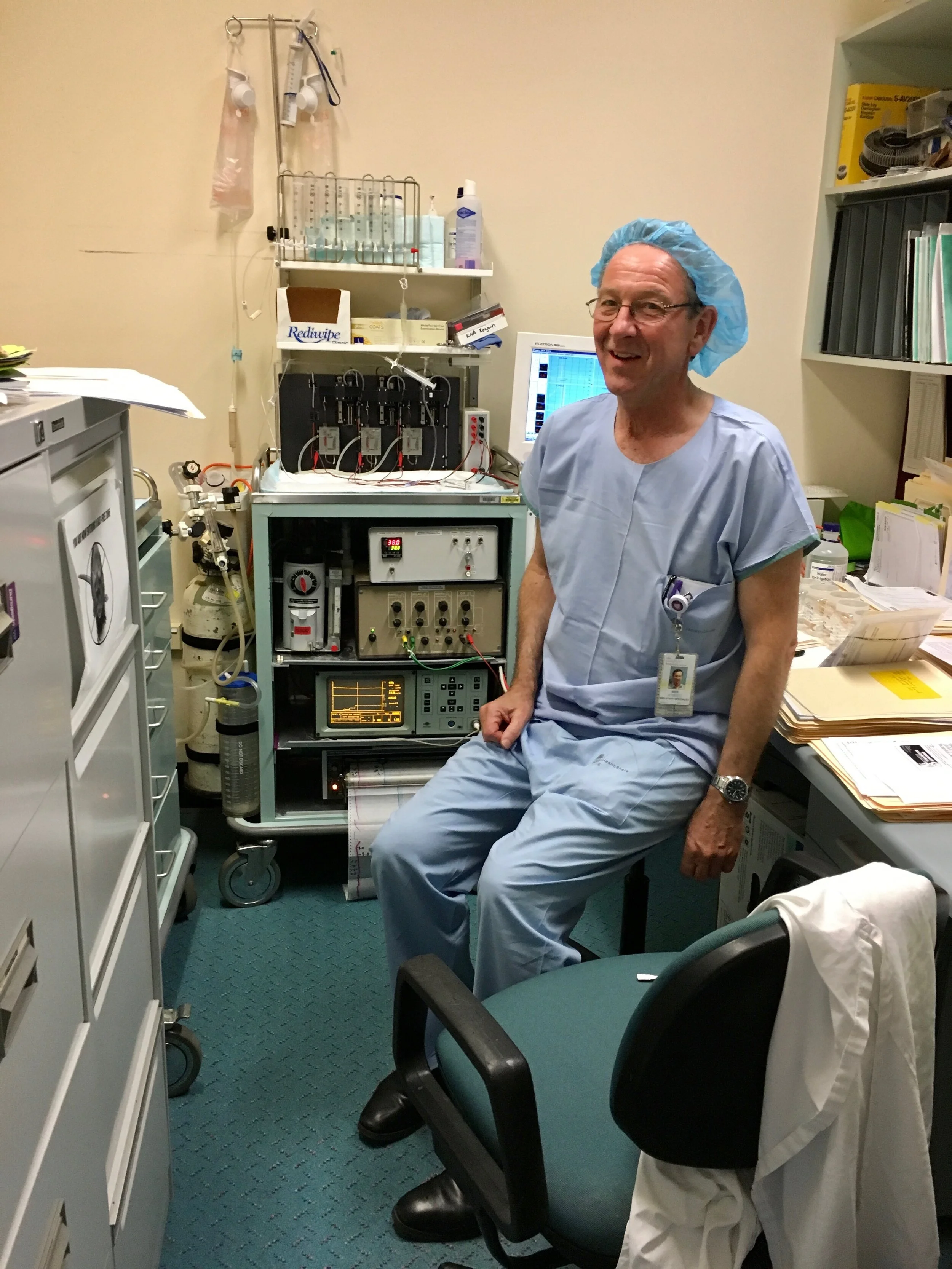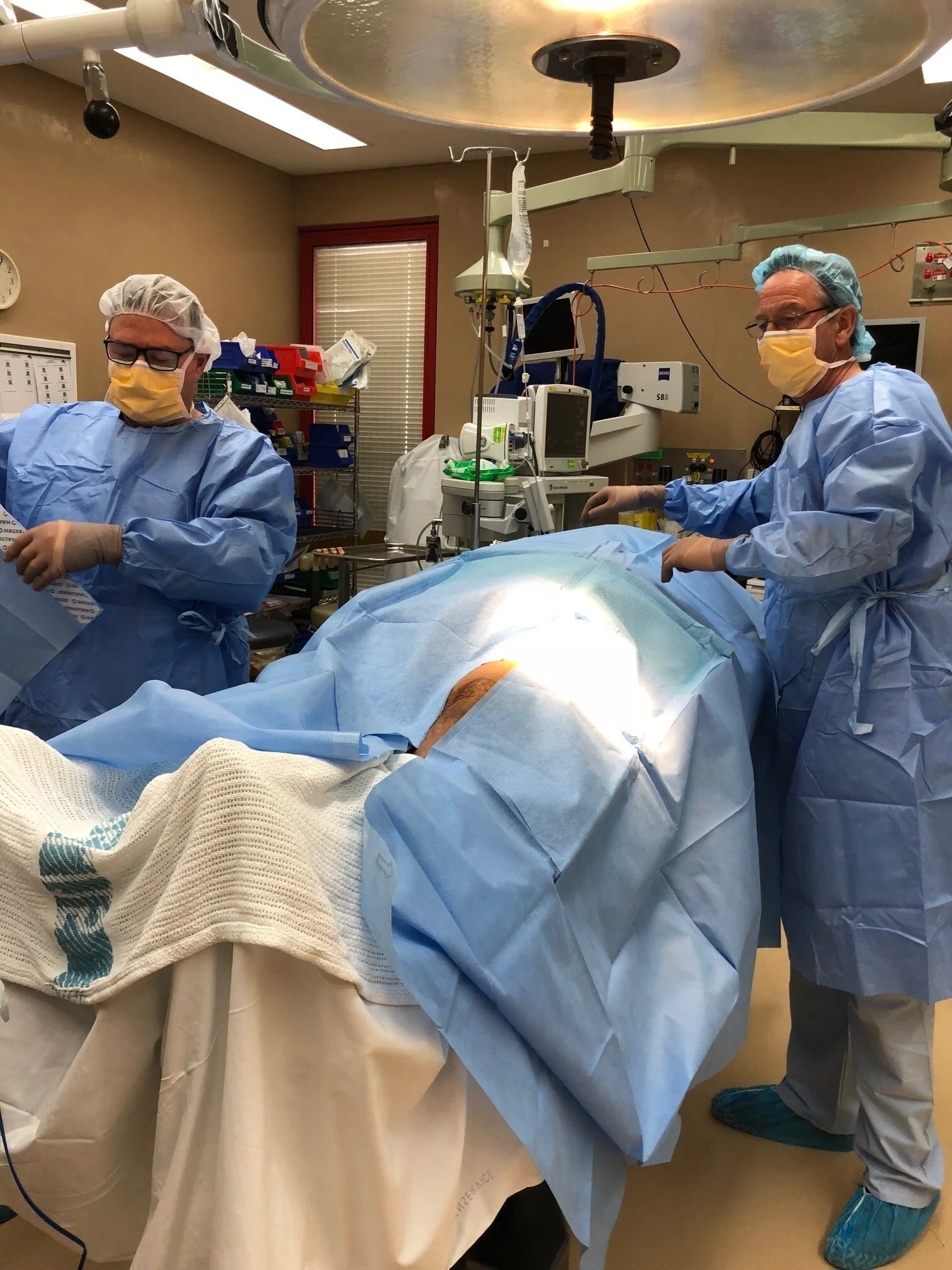
The Malignant Hyperthermia Unit
If you can’t find it, build it.
Amongst many amazing achievements, Neil’s work setting up the Malignant Hyperthermia Unit at The Children’s Hospital at Westmead stands out as truly extraordinary. Built from nothing with a collection of colleagues, the Malignant Hyperthermia Unit has now spent two decades looking after families.
What is Malignant Hyperthermia?
Malignant Hyperthermia (MH) is a rare clinical condition seen when patients with a genetic predisposition are exposed to certain anaesthetic agents, resulting in uncontrolled release of calcium into muscle cells. This creates sustained muscle contraction, metabolic changes and, if not recognised and treated, death.
It is also preventable.
All that it takes to prevent MH is to use different anaesthetic agents. But to know to do that in a patient, you need to know a diagnosis in advance.
Neil knew this all too well having looked after a patient during his anaesthetic training who died after an episode of MH. As a specialist, he realised that patients in New South Wales needed a service devoted to this rare condition - this is what he created.
What do you need for an MH service?
Well you need people to do the work, obviously. But the testing itself relies on a very specific test – the In Vitro Contracture Test (IVCT). This is not a test you do by sending it to your standard lab. You need a whole machine dedicated just to this test.
For Neil and others to set up the MH service they needed that machine. A machine that can take a small bit of muscle, bathe it in fixed concentrations of both caffeine and halothane and measure the tension that develops. This is no simple machine and it has to be extremely accurate.
So if you do not have a machine and you are Neil Street you build one.
Like so many things Neil did this was a collaboration. The biomedical engineering and biochemistry departments were all part of the mission to source and manufacture components. All to produce a machine that could sit in his office.
The IVCT is supplemented by an MH genetic service provided by Dr Margaret Perry. The MH service includes establishing family trees and counselling families about what a test result means and also provide support and assistance to anaesthetists. They are also ready at any time to support and provide advice to anaesthetists, wherever they call from.
Finally, someone needs to get a sample of muscle. And, to hear Neil tell it, surgeons just didn’t give him the samples he wanted. So he did that too.
All of those elements came together to produce the MH service. First planned in 2000. First operational in 2002. And then the first centre in the world outside of Europe to be accredited by the European Malignant Hyperthermia Group in 2006.
And they have provided their service to more than 520 families not just in NSW but across multiple states.
What does the service look like?
Patients arrive on a scheduled day to have a ‘non-triggering’ anaesthetic, delivered by Dr Mark Lovell, at the Acute Surgical Unit at Westmead Hospital. Once under way, Neil would take the necessary muscle specimens, along with Dr David Baines. They would carry the samples back to the offices where Neil would proceed with the testing. Once under way, Neil would take the necessary muscle specimens, along with Dr David Baines. They would carry the samples back to the offices where Neil would proceed with the testing.
Blood samples would also be taken for Dr Perry’s further genetic analysis. Once all the results were in and checked, Neil would follow up with the patient and their family to run through the results and explain the implications.
And the service continued year after year without any special support or funding for 18 years.
As he approached retirement from clinical work, Neil prepared a new generation to carry on the work. Dr Perry still takes care of genetics. Dr Lovell still delivers the anaesthetics. They’ve been joined by Research Officer Dr Minal Menezes. And the job of getting those biopsies and running the IVCT is now done by Dr Gail Wong. However, Neil continued to oversee the biopsies and provide pearls of wisdom since retiring from clinical work.
And in 2019, they were finally able to start commissioning a new machine. To run alongside Neil’s.





